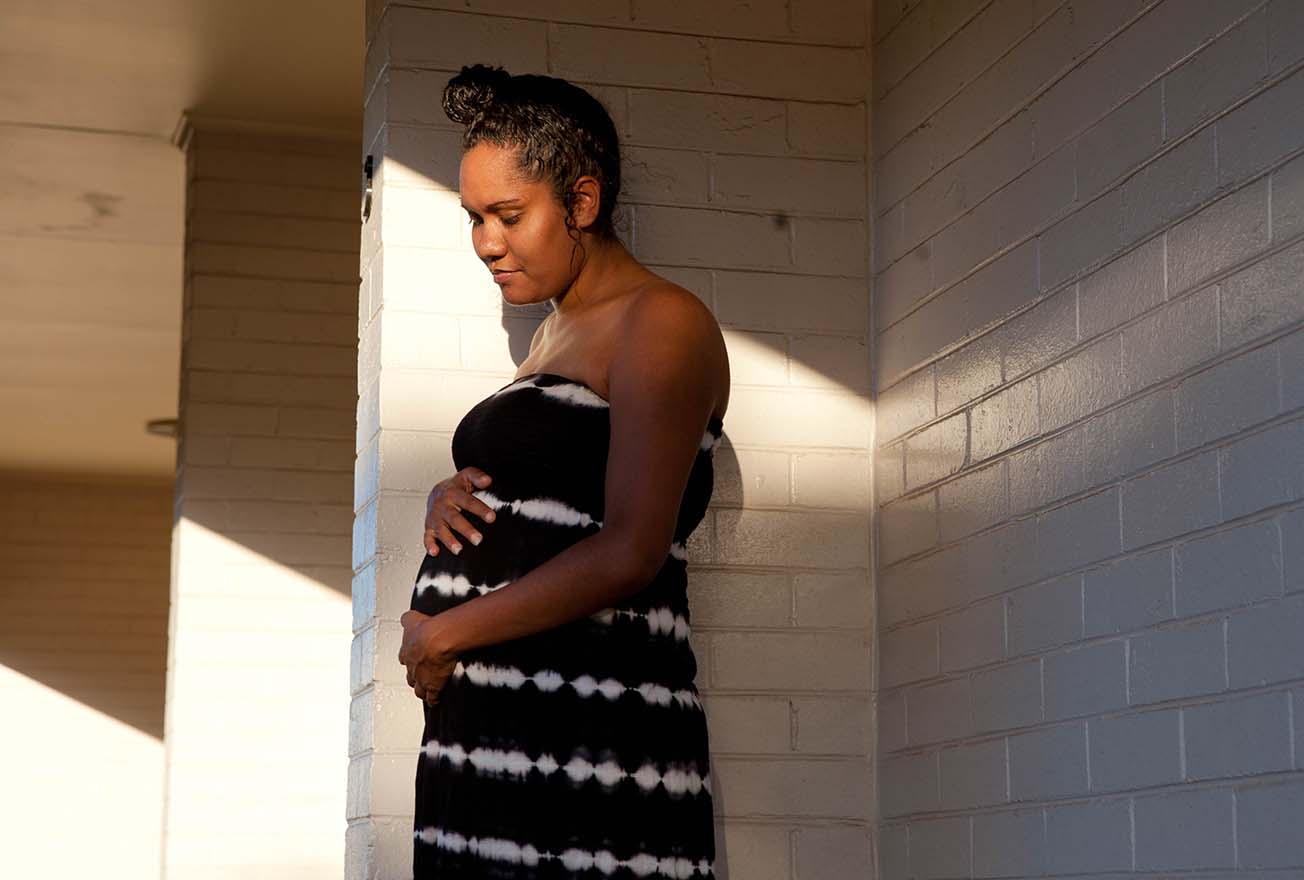Call NSW Infoline 1800 803 990
Speak to a member of our hepatitis Infoline team via either phone call or online with live chat.
Call or Chat

Hep C usually won’t affect your ability to become pregnant. There is only a very small chance your baby will be born with hep C (4-6% ). If your baby is born with a hep C infection, there is a 50% chance that they will clear the infection naturally by the time they turn 1.
If you have liver cirrhosis and want to start a family, talk to your Liver Clinic doctor or your specialist before you become pregnant.
If you have fertility issues, Assisted Reproductive Technology (ART) services may help. When you use ART, you and your partner will be asked about hep C. If a man has hep C, they will only be able to donate semen for their partner to use. If a woman has hep C, she can donate her eggs to other people.
When you are pregnant, you will probably be given a lot of tests. As part of this, you will usually be tested for hep C. The first hep C test (antibody test) will tell you if you have ever had hep C. If the first test comes back positive, you will be asked to take another test. The second hep C test (PCR test) will tell you if you have hep C now. Your doctor or nurse will then work with you to keep you and your baby as healthy as possible during your pregnancy and birth.
Most babies are not at risk of catching their mum’s hep C. Of all mums with hep C, less than 6 in 100 babies will be born with hep C.
Hep C is passed on through blood-to-blood contact. If a baby is born with hep C it has been passed on either in the womb or during child-birth.
Hep C is not passed onto your baby through breastmilk. For more information, call the Hepatitis Infoline or read our Pregnancy, babies and children factsheet.
Speak to a member of our hepatitis Infoline team via either phone call or online with live chat.
Call or ChatThere is no evidence to show hep C can be passed from a father to his baby (at conception or in the womb). If both parents have hep C, there is no extra risk that the baby will be born with hep C.
No, you can still have a natural birth if you have hep C. There is no benefit to you or your baby if you have a caesarean delivery. Doctor’s might still recommend a caesarean for other medical reasons, but not because you have hep C.
You do not have to tell any health care workers at your birthing clinic about your hep C. But, it is recommended that you tell your midwife and obstetrician, so they can help to lower the risk of hep C being passed on to your baby. This will help them to make the best choices to stop your baby being exposed to blood (e.g. with foetal scalp sampling or electrodes to monitor your baby during birth).
Yes, mothers with hep C can breastfeed their babies. There is no evidence that breastfeeding can pass on hep C to your baby. Hep C is passed on through blood, so mothers with hep C should stop breastfeeding only if they have cracked nipples. While your nipples are healing, you can express and throw away the milk. Once your nipples are healed, you can breastfeed your baby again.
Your baby will only need to be tested for hep C if you had hep C while you were pregnant. Your baby can be PCR tested at 8 weeks and then 14 weeks old. This will show if your baby has hep C at the time of the tests. Babies born with hep C have a 50% chance of clearing it in the first year. At 18 months your baby can have an anti-body test to check if they have fully cleared the virus.
If a baby is born with hep C, it will have a 50% chance of clearing their infection naturally. This will happen within the first 12 months of their lives.
If your child has chronic hep C, it is best for them to see a a paediatrician (children’s health specialist) who can monitor their hep C. Childhood hep C is usually mild with very little liver inflammation.
There is no need to tell other people about your child’s hep C. This means you don’t need to tell other family members, childcare staff, schools, baby sitters, friends of the child or sports and activity groups.
For more information, call the Clinical Nurse Specialist in the Department of Gastroenterology, The Children’s Hospital at Westmead on 9845 3999 >>
If you are pregnant or breastfeeding, you shouldn’t go on hep C treatment. It is recommended that you wait 4 weeks after treatment before trying to become pregnant.
It is very important to talk to your doctor about treatment, pregnancy, and contraception.
Studies say that it’s best to tell your child they have hep C as soon as your child is old enough to understand what it means.
Around eight years old might be a good age, or earlier if your child is asking questions related to hep C.
For more information on speaking to your child about tough topics, go to the Raising Children website >>
If you’d like to know more about how hep C may affect your pregnancy, baby or child, phone the Hepatitis Infoline today.
You can also visit our detailed hep C page, view our hep C testing chart or read our Pregnancy, babies and children factsheet for more information.
Find local clinics and specialists in NSW who can help you with Hepatitis treatment and care.
Find Help